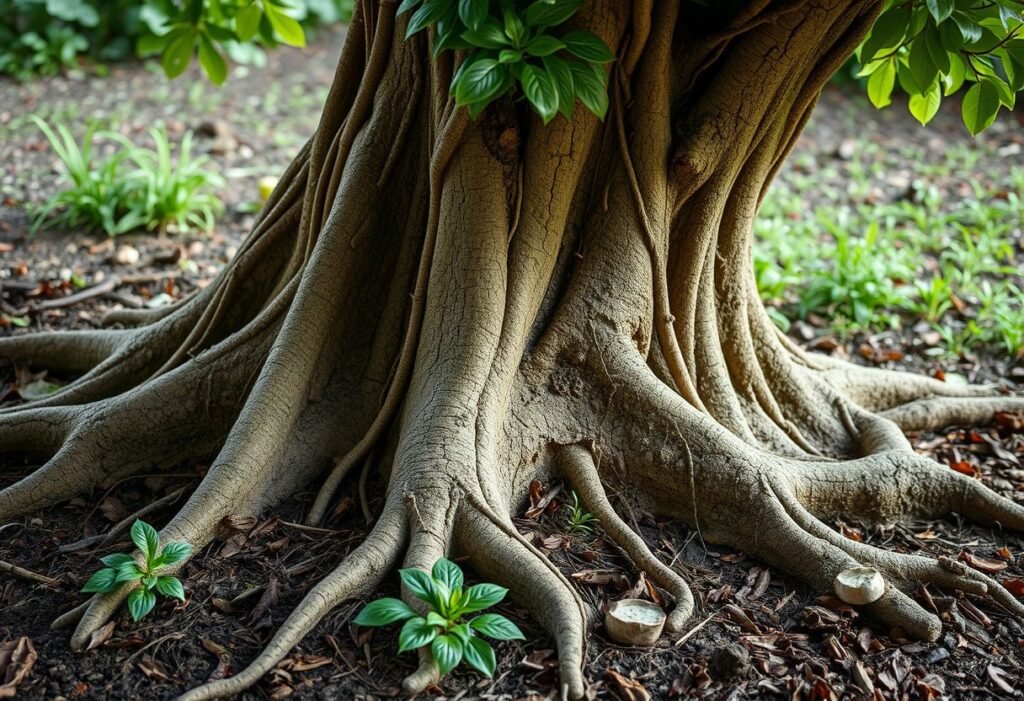The Impact of Tree Roots on Other Plants
Tree roots are relentless in their quest for water and nutrients. Ultimately, they can “kill” smaller plants that are competing for the same resources. Mature and strong trees utilize their extensive root systems, which significantly weakens the nearby vegetation. Even worse, roots can compete with other plants for space, depriving them of essential minerals they need to thrive.
Mycorrhiza and Its Importance
Mycorrhiza is a phenomenon that can both support and destroy smaller plants. Tree roots establish symbiotic relationships with soil fungi, enhancing their ability to absorb nutrients. Unfortunately, this process can also lead to situations in which smaller plants struggle to survive in the degraded soil where roots dominate.
Identifying Root Problems
The best way to identify a problem with tree roots is through observation. If you notice your plants’ leaves turning yellow or dropping off, it could indicate that their roots are struggling against competition for resources. Additionally, distorted growth can indicate that tree roots are killing plants in your garden.
Protecting Your Plants from Tree Roots
To promote healthy plants, investing in proper gardening techniques is key. You might consider creating barriers for tree roots to limit the space they can grow into. For instance, installing root barriers or selecting suitable plants for your garden can prove crucial. Every plant requires adequate space to grow effectively.
What to Do with Trees in Harmful Locations?
Sometimes the only solution to save other plants is to remove trees whose roots negatively impact growth. However, it’s essential to remember that trees play many roles in the ecosystem. Instead of removal, consider transplanting them to a more suitable location, which may benefit both the old tree and the new plants.
Alternative Plants as a Solution
Choosing plants with smaller root systems can help combat tree roots. Herbs, certain types of flowers, or small shrubs are excellent choices, as they won’t compete for space and resources like larger plants do. Always consider the existing ecosystem before deciding on new plantings.
Proper Soil Care
The most crucial aspect of preventing issues with tree roots is ongoing soil care. Maintaining optimal moisture, nutrient levels, and pH will make your plants less vulnerable to the influence of tree roots. Besides fertilization, regular watering and mulching also help ensure healthy soil conditions.
Conclusion
Managing the challenges posed by tree roots in your garden can be daunting but also a chance to improve conditions for other plants. Remember that everything is possible with the right knowledge and approach. Consider which plants you choose, where you plant them, and how you care for the soil. I believe that by taking these steps, you can create a beautiful and thriving garden that will certainly shine in every season.
Disclaimer
This article is for informational purposes only and does not replace professional gardening advice.

















